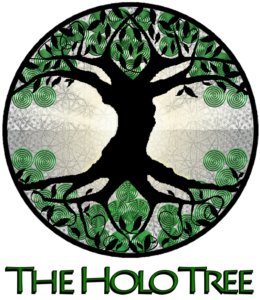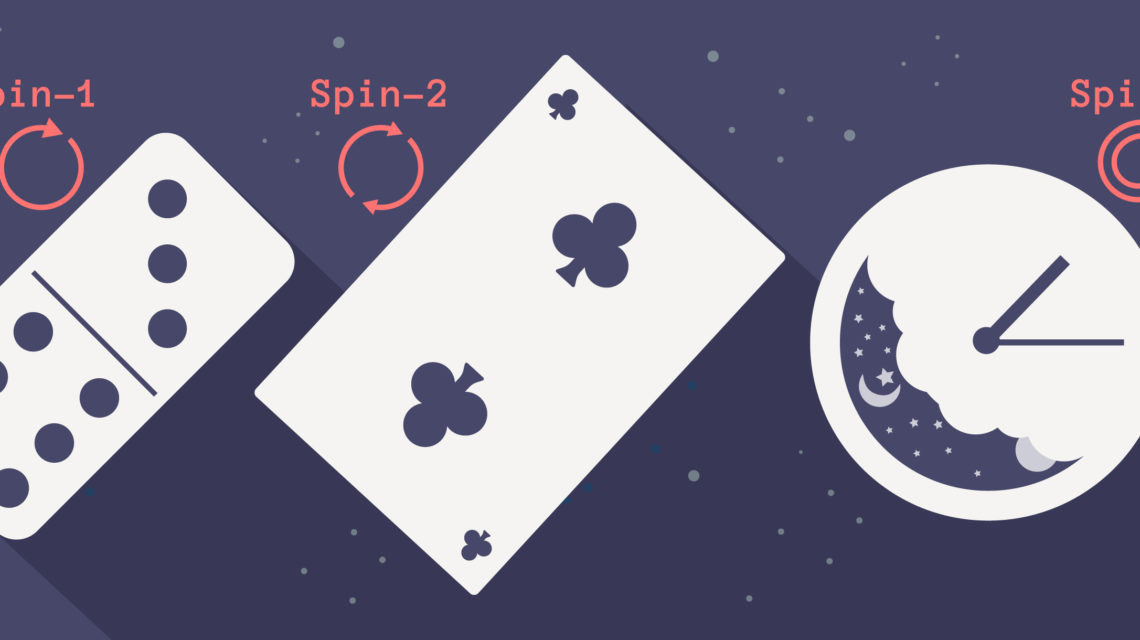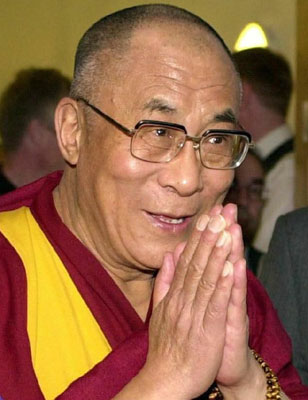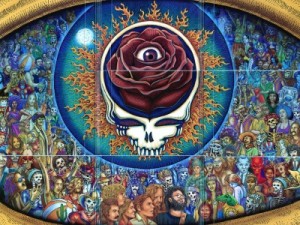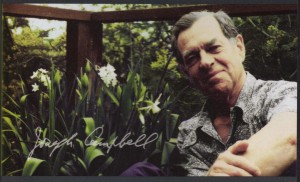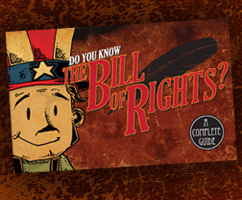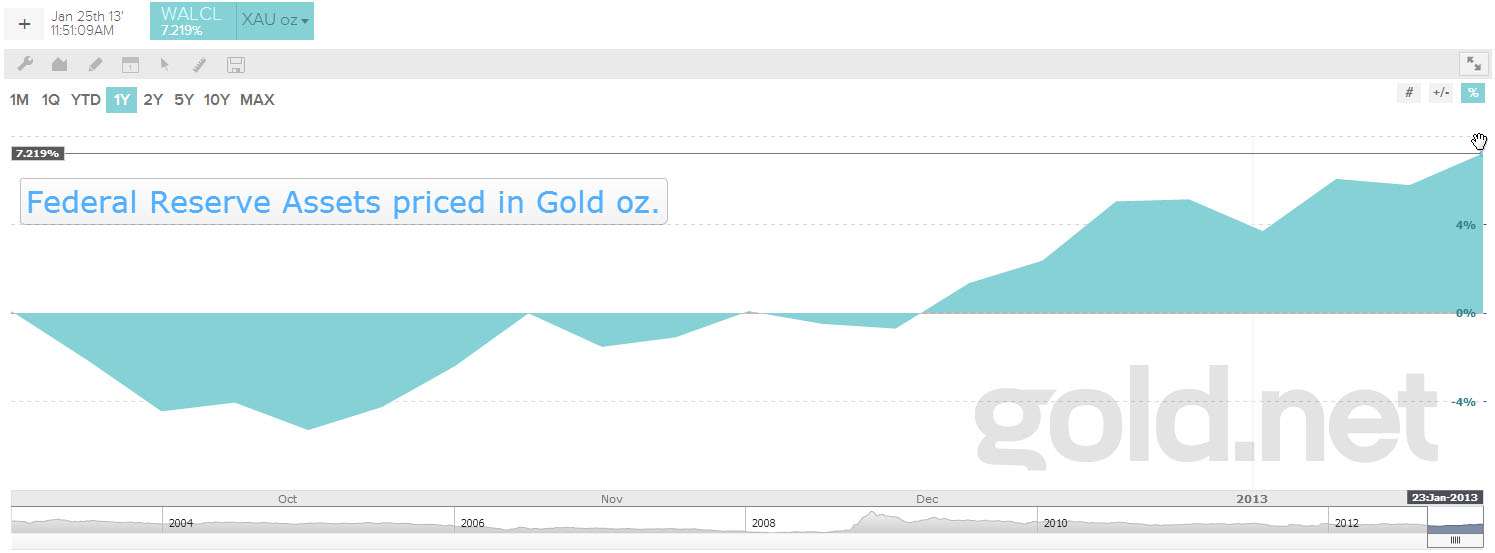Why the Laws of Physics Are Inevitable
His Holiness The 14th Dalai Lama speaks-Gibson amphitheatre February 21st, 2010
His Holiness The 14th Dalai Lama spoke to an absolutely quiet and enthralled audience today at Gibson Amphitheater. The anticipated event was produced by Whole Child International, the brainchild of Karen Gordon – more on her later.
I have seen HH Dalai Lama speak several times, but this time he seemed at his best, IMHO. He is unassuming and not aware of his star power when he speaks. He truly comes across as, he says, a humble monk. Contrast this with the blowhards on Capitol Hill or the White House. So self-important… what a snooze.
Today, His Holiness spoke almost in lessons so to speak, not in high-brow fashion, but in a down-home voice almost – along with his translator, who His Holiness constantly shot questions to for interpretation of certain euphemisms and idiomatic expressions. In this regard, the 76-year-old monk is remarkable.
His Holiness remarked that the day before, a woman at another event told him she had healing powers. He said that he was skeptical. (Only in Los Angeles would someone tell HH that they have healing powers. And you’re worried about legalizing marijuana…?)
He said to her, and I’m paraphrasing a little, “I have no healing powers. On October 10, 2008 I had my own gall bladder removed by a surgeon. If I had such powers, I’d have worked my healing powers on myself. This is scientific proof that I have no healing powers, however, the doctor and his wife are getting along much better since my surgery,” to which the audience laughed and applauded in appreciation of his candor, but I think in a bit of disbelief also. He said, “having a compassionate heart is the only healing power you can have.”
A few other gems from HH today:
The future of humanity depends on the public (not government leaders)
Inner peace leads to global peace. It starts with you, not politicians
Cultivate compassion by caring for all living things (except mosquitoes, he said to roaring laughter)
There is no more US and THEY – that is “old way,” he said…today only WE
Internal disarmament leads to external disarmament
I would love to go on and on about His Holiness, but the day also belonged to visionary Karen Gordon of the phenomenal non-profit Whole Child International, whose vision is “to elevate the level of childcare for vulnerable children worldwide so that each child be granted the basic human right to fulfill his or her developmental potential.”
Gordon’s vision for Whole Child is to get children “off the assembly line of caregiving” and get them focused, one-on-one attention by the same caregiver in institutional orphanages by focusing on a train-the-trainer model.
The organization she founded in 2004 produced today’s event to honor HH as the 2010 Whole Child Humanitarian as well as Tom Mower, Sr., founder and Chairman of SISEL International, who was named Whole Child International Champion.
In a video presentation, Mower said he was on the verge of setting up his own company to help such vulnerable children, when he happened upon a Forbes magazine article featuring Gordon and Whole Child. Gordon said to the group, that Mower has since given over $1 million of his personal assets to Whole Child.
HH was honored because he believes that “the way to cultivate compassion among humanity is to lovingly nurture each child.”
After Gordon’s opening remarks, we were treated (and I mean really treated) to several songs by Sheryl Crow, the first being The Beatles Here Comes The Sun. Crow donated her time for today’s event.
I’ve seen Crow a few times live and I’m beginning to believe that she is entirely under-rated. She blew me away. Lots of soul in her voice – you can’t teach that to someone. I think you have to be entirely present to sing like that.
You can donate to Whole Child International via Text2Give by following these instructions:
Text the letters WCI followed by a space followed by a donation amount to 27138.
For example:
WCI $100 to 27138
Joseph Campbell and the Grateful Dead
“The Deadheads are doing the dance of life and this I would say, is the answer to the atom bomb.”
“I had a marvelous experience two nights ago. I was invited to a rock concert. (laughter in the audience) I’d never seen one. This was a big hall in Berkeley and the rock group were the Grateful Dead, whose name, by the way, is from the Egyptian Book of the Dead. And these are very sophisticated boys. This was news to me.
Rock Music has never seemed that interesting to me. It’s very simple and the beat is the same old thing. But when you see a room with 8,000 young people for five hours going through it to the beat of these boys… The genius of these musicians- these three guitars and two wild drummers in the back… The central guitar, Bob Weir, just controls this crowd and when you see 8,000 kids all going up in the air together… Listen, this is powerful stuff! And what is it? The first thing I thought of was the Dionysian festivals, of course. This energy and these terrific instruments with electric things that zoom in… This is more than music. It turns something on in here (the heart). And what it turns on is life energy. This is Dionysus talking through these kids. Now I’ve seen similar manifestations, but nothing as innocent as what I saw with this bunch. This was sheer innocence. And when the great beam of light would go over the crowd you’d see these marvelous young faces in sheer rapture- for five hours! Packed together like sardines! Eight thousand of them! Then there was an opening in the back with a series of panel windows and you look out and there’s a whole bunch in another hall, dancing crazy. This is a wonderful fervent loss of self in the larger self of a homogeneous community. This is what it is all about!
It reminded me of Russian Easter. Down in New York we have a big Russian Cathedral. You go there on Russian Easter at midnight and you hear Kristos anesti! Christ is Risen! Christ is Risen! It’s almost as good as a rock concert. (laughter) It has the same kind of life feel. When I was in Mexico City at the Cathedral of the Virgin of Guadalupe, there it was again. In India, in Puri, at the temple of the Jagannath- that means the lord of the Moving World- the same damn thing again. It doesn’t matter what the name of the God is, or whether its a rock group or a clergy. It’s somehow hitting that chord of realization of the unity of God in you all, that’s a terrific thing and it just blows the rest away.” —Joseph Campbell (1986)
—————————————
“The next great, proud moment was when Mickey Hart and Bob Weir come along and tell me I’ve helped them. Well, I never — the rock music never appealed to me at all. It was largely monotonous, it seemed to me. Then they invited Jean [his wife] and me to an event in Oakland that just became a dance revelation. I got something there that made me note that this is magic. And it’s magic for the future. . .
They hit a level of humanity that makes everybody at one with each other. It doesn’t matter about this race thing, this age thing, I mean, everything else dropped out. The wonderful thing was, compared to the Hitler rallies that you see in the film that were used to a political purpose, here it was just the experience of the identity of everybody with everybody else.
I was carried away in a rapture. And so i am a Deadhead now…” —Joseph Campbell, The Hero’s Journey
—————————————
” …it seemed to me we had the kind of awakening that the great religions first intended, and that somehow it involved everybody. There were kids there. There were old people there, and in other parts of the building there were people just dancing and dancing… we had a chance to awaken our hearts, unbound by any particular cultural or religious commitments to this group or that. It seemed to me, and I’m meaning this very seriously, a prime religious experience that transcended all the bondages and definitions of who and what we are that are the curse of the world today. This, I would say, is the answer to the atom bomb.” —Joseph Campbell speaking about watching Deadheads at a Grateful Dead Show
The Rutherford Institute :: Victory: Unanimous Supreme Court Rules that Citizens Can Hold Federal Government Liable for Abuse by Law Enforcement Officers Police, Prison Guards
Today is the Day to Buy Gold | GoldNews.com
BASEL update December 2012
This is compelling information for those with an understanding and interest of and in contemporary Global money and Banking matters.
Rob McEwen Predicts $5,000 Gold $200 Silver Price | Goldnews
Financial Services Hearing Highlights Feb 29 2012 – Dr. Ron Paul Unmatched Intellect – EndTheFed! – YouTube
United Steelworkers launch alternative to broken, corrupt capitalism
USW – Leo W. Gerard, International President of the United Steelworkers, together with representatives from Mondragon International., the global worker industrial cooperative leader, and the Ohio Employee Ownership Center, have announced that a new “union co-op” model template is available for organizations wanting to combine worker equity with a progressive collective bargaining process. This template was created as follow up to the original USW-Mondragon agreement in October 2009 to collaborate in establishing Mondragon-like industrial manufacturing cooperatives that adopt collective bargaining principles to the Mondragon worker ownership model of “one worker, one vote” within the United States and Canada.
“To survive the boom and bust, bubble-driven economic cycles fueled by Wall Street, we must look for new ways to create and sustain good jobs on Main Street,” urged Leo Gerard. “Worker-ownership can provide the opportunity to figure out collective alternatives to layoffs, bankruptcies, and closings in hard times, rather than having the rug pulled right out from under struggling communities to the benefit of a few at the expense of the many”.
Josu Ugarte, President of Mondragon International, added: “Mondragon is very pleased to support this historic collaboration – combining the world’s largest industrial worker cooperative with one of the world’s most progressive and forward-thinking manufacturing unions – to work together.”
Building upon this union co-op model, exciting new projects in Pittsburgh and Cincinnati are already well underway. Additional projects based on the union co-op concept have begun or have been proposed in multiple locations from coast-to-coast. Pittsburgh intends to announce its first union-coop project sometime in the late May, early June.
OEOC Director, Bill McIntyre stated: “Statistics emerging from the Great Recession demonstrate that employee-owners were much less likely to have been laid off and much less likely to be looking for a new job than were non-employee-owners. By extension, employee-owned companies have more stable, loyal and experienced workforces which translate into real cost-saving, productivity and quality advantages in the marketplace. In the aggregate, employee-owned companies are more successful than comparable non-employee-owned companies, and the beauty of employee ownership is that success is shared by all employees and the wealth created has a positive impact on the communities in which they live.”
The USW-Mondragon union co-op model seeks to build on the ten basic principles that Mondragon co-operatives have put into practice during the past fifty-five plus years:
Open Admission
The co-op will not discriminate in the admission of new worker-owners, except that the worker-owner must accept the basic principles and be capable of performing the work required.
Democratic Organization
The principle of “one worker, one vote” shall prevail throughout the co-op, including the annual general assembly and the election of the board of directors. Every worker-owner owns an equal share and has an equal vote through “one class” ownership.
Sovereignty of Labor
Labor is the main factor for transforming nature, society and human beings themselves. As a result, Labor is granted full sovereignty in the organization of the co-operative enterprise, the wealth created is distributed in terms of the labor provided and there is a firm commitment to the creation of new jobs.
Instrumental and Subordinate Nature of Capital
People are prioritized over profits. Providing and creating jobs are prioritized over increasing the marginal return on investments. As President Abraham Lincoln wrote in his first State of the Union address in 1861: “Labor is prior to and independent of capital. Capital is only the fruit of labor, and could never have existed if labor had not first existed. Labor is the superior of capital, and deserves much the higher consideration.”
Participation in Management
“Ownership” must become more than just the value of a share. Workers must also undertake the responsibilities of ownership in the co-op by their participation in the management of the co-op, ensuring that the co-op remains accountable to its worker-owners.
Wage Solidarity
Wage solidarity means there is less disparity among workers and the communities in which they live, reinforcing the equality and quality of ownership. In most cases, the highest paid worker in the Mondragon co-operatives makes no more than 5 to 7 times the lowest paid worker.
Inter-Cooperation
Just as workers benefit from working cooperatively in a business, so too can co-ops benefit from working cooperatively with other co-ops. Such an interdependent system of co-ops allows each co-op to create and share common resources such as financing, research and development, and training, as well as to support each other through down turns in the markets or the economy
Social Transformation
A key part of the co-op’s mission is to support and invest in their communities by creating jobs, funding development projects, supporting education, and providing opportunity.
Universality
The co-op supports all efforts to promote workplace democracy and promotes the co-operative model and culture as a means to achieve social and economic justice.
Education
Education is valued as “the key to the development and progress of a people” and is critical to “democratize power”, as quoted from Mondragon’s founder, Father José María Arizmendiarrieta. Education and lifelong learning provide the tools for worker-owners to adapt and sustain the cooperative.
Creating sustainable jobs and sustainable communities requires broadening the definition of societal value beyond “the bottom line.” Democratic worker ownership principles combined with social and economic justice differentiate the union co-op model from traditional business models, making the union co-op option sustainable and giving it a competitive edge over the long term as worker-owners get to benefit more fully from their hard work and own their own decision-making process and all the fruits of their labors.
The full text of the union co-op model is available at www.usw.coop or www.union.coop
About the USW: The USW is North America’s largest industrial union representing 1.2 million active and retired members in a diverse range of industries. (www.usw.org)
About Mondragon: The Mondragon mission is to produce and sell goods, and provide services and distribution using democratic methods in its organizational structure and distributing the assets generated for the benefit of its members and the community as a measure of solidarity. Mondragon began its activities in 1956 in the Basque town of Mondragon by a rural village priest with a transformative vision who believed in the values of worker collaboration and working hard to reach for and realize the common good. Today, with approximately 850,000 cooperative members in over 260 cooperative enterprises present in more than forty countries; Mondragon is committed to the creation of greater social wealth through customer satisfaction, job creation, technological and business development, continuous improvement, the promotion of education, and respect for the environment. In 2011, Mondragon reached annual sales of more than twenty-four billion dollars with its own cooperative university, cooperative bank, and cooperative social security mutual and is ranked as the top Basque business group, the seventh largest in Spain, and the world’s largest industrial workers cooperative. ( www.mondragon-corporation.com)
About the OEOC: The Ohio Employee Ownership Center is an outreach center of Kent State University in Kent, Ohio. It was founded in 1987 by John Logue who worked tirelessly to bring the successful Mondragon business practices and employee ownership structure and governance to the United States. Since Dr. Logue’s untimely death in 2009, the OEOC’s staff of eleven has continued to carry out its mission to promote employee ownership through employee stock ownership plans (ESOPs) and worker-owned cooperatives in order to broaden capital ownership, deepen employee participation, retain jobs locally, and increase living standards for working families and their communities. (www.oeockent.org )


